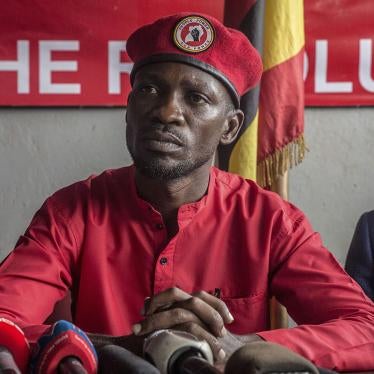The latest episode of Saudi Arabia’s unrelenting assault on freedom of expression is the Jeddah Criminal Court’s May 7, 2014 conviction of liberal activist Raif Badawi. The court sentenced him to 10 years imprisonment and 1000 lashes for setting up a liberal website and allegedly insulting Islam and religious authorities.
Badawi can appeal the verdict, but unfortunately he’ll have to do so without the help of his lawyer, human rights activist Waleed Abu al-Khair. Abu al-Khair is currently in Riyadh’s Malaz Prison awaiting the resumption of his own criminal trial before Saudi Arabia’s terrorism tribunal, the Specialized Criminal Court, on charges that include “breaking allegiance with the king,” “making international organizations hostile to the kingdom,” and “setting up an unlicensed organization.” A judge jailed Abu al-Khair on April 15 without allowing him to notify his family, and until now authorities have not disclosed the basis of his detention.
Saudi Arabia has a long history of suppressing free expression. What is different with these cases is the long prison terms imposed by the terrorism court on activists, sometimes ranging between 10 to 15 years.
Fadhil al-Manasif is a case in point. A human rights activist from the Eastern Province city of Qatif, al-Manasif received a harsh 15-year sentence from the Specialized Criminal Court on April 17, plus a 15-year travel ban after his prison sentence and a fine of 100,000 Saudi Riyals (US$26,666) – for charges that included “breaking allegiance with the king” and “being in contact with foreign news agencies in order to exaggerate news and harm the reputation of the kingdom of Saudi Arabia and its people.”
Making matters worse, new terrorism regulations promulgated by Saudi authorities in 2014 criminalize, as terrorism-related offenses, acts such as “contact or correspondence with any groups [that are] hostile to the kingdom,” “making countries, committees, or international organizations antagonistic to the kingdom,” and “calling, participating, promoting, or inciting sit-ins [or] protests.”
As a member of the UN Human Rights Council, Saudi Arabia has pledged to “uphold the highest standards in the promotion and protection of human rights,” but ongoing repression against peaceful dissidents and activists makes a mockery of this pledge and calls into question the willingness of Saudi Arabia to improve its record.








